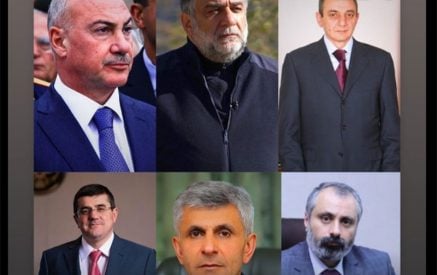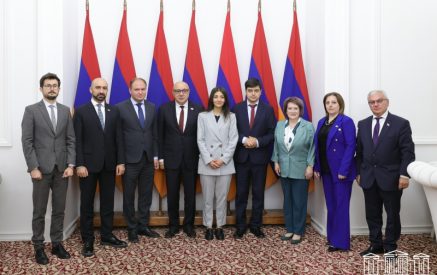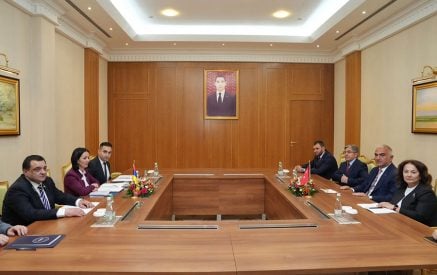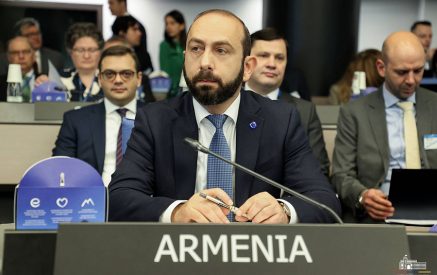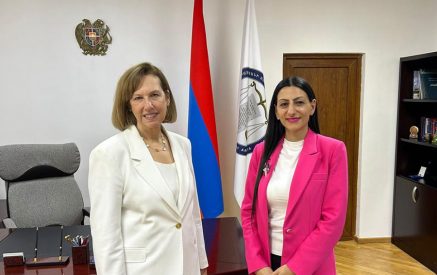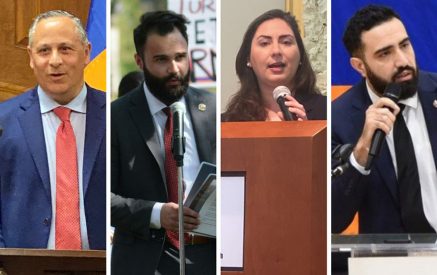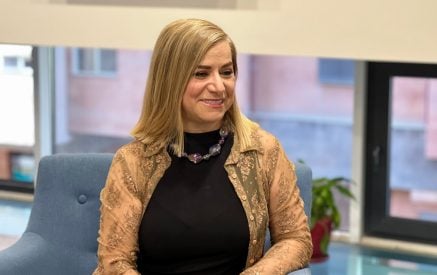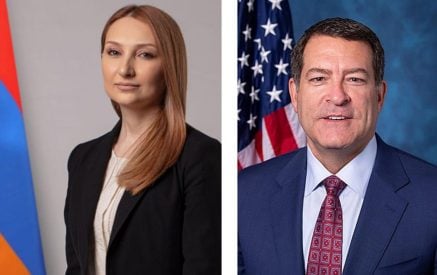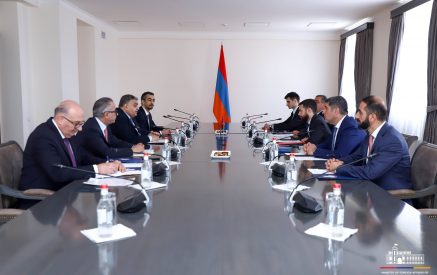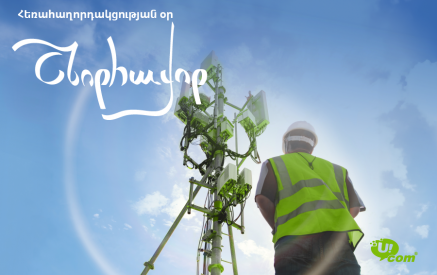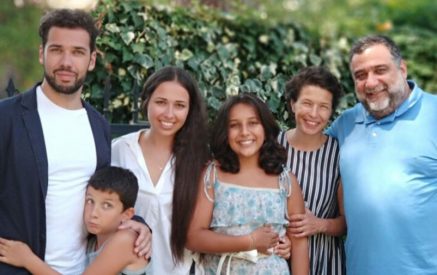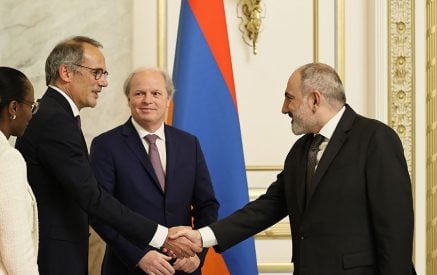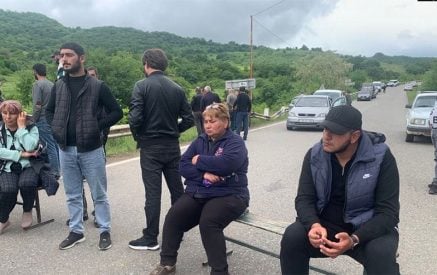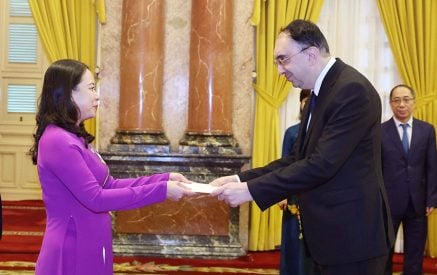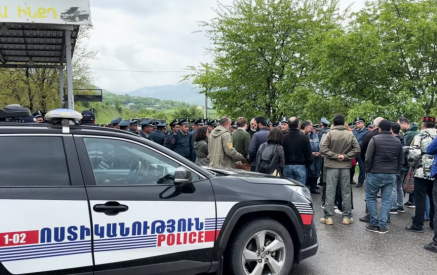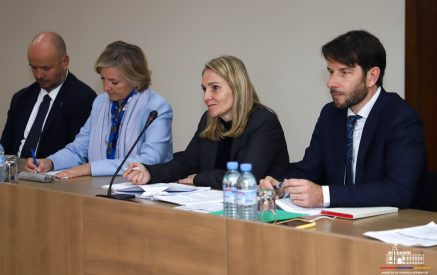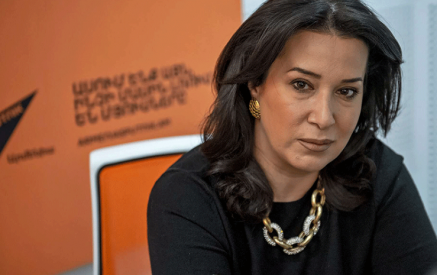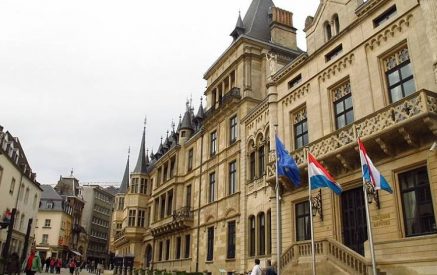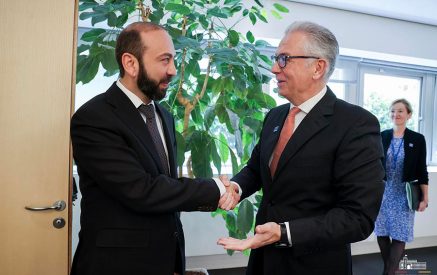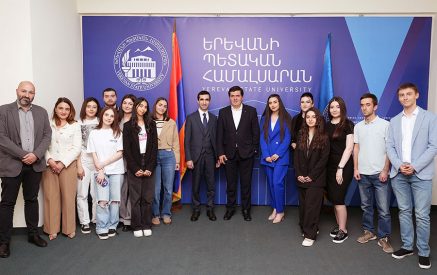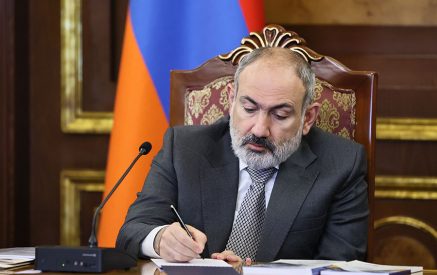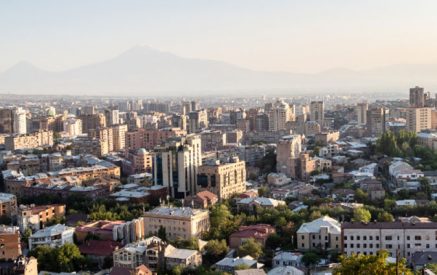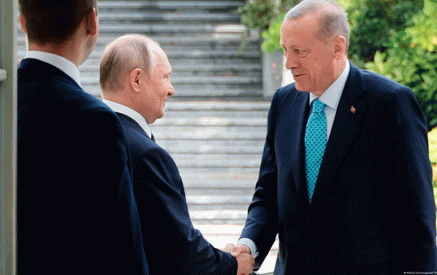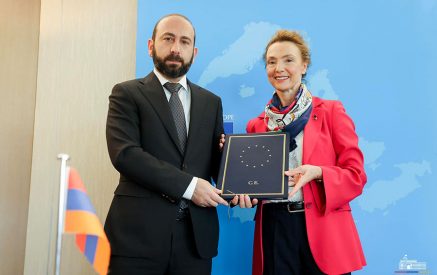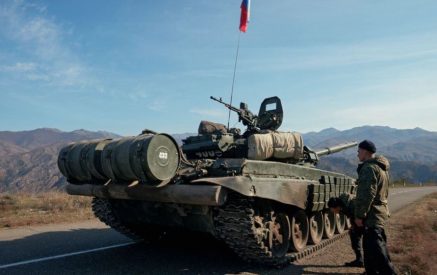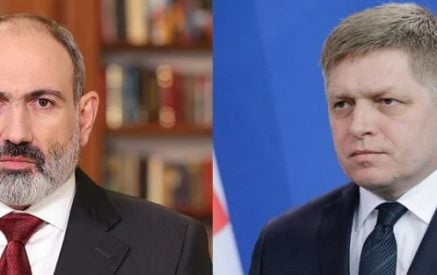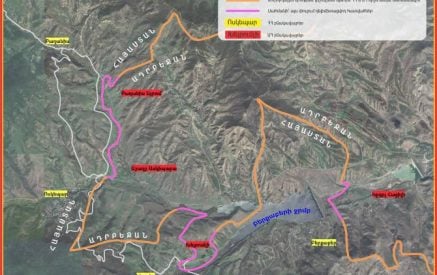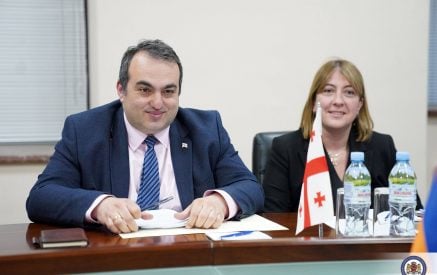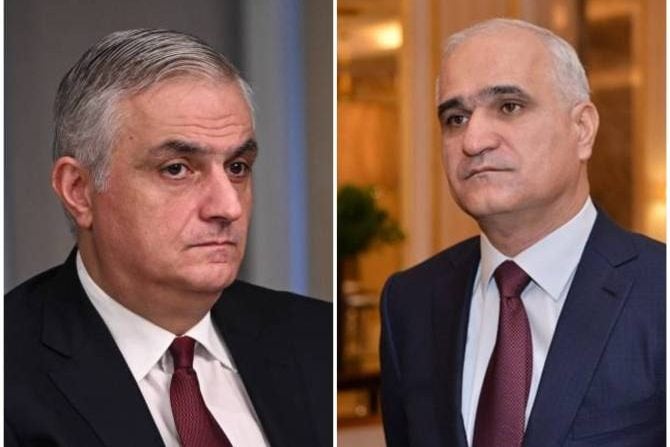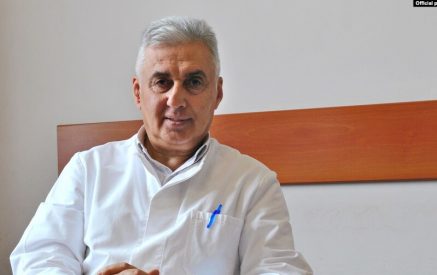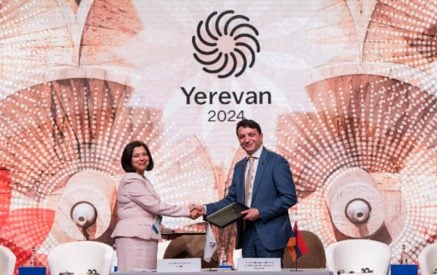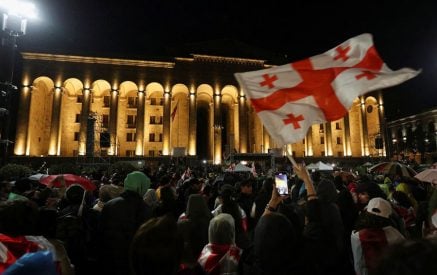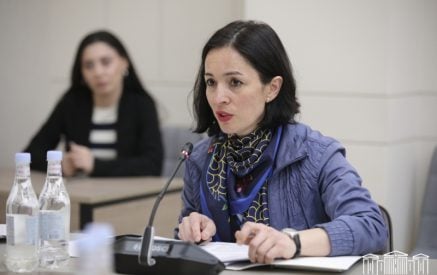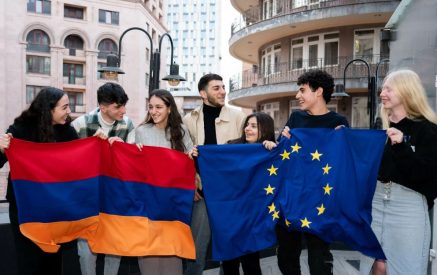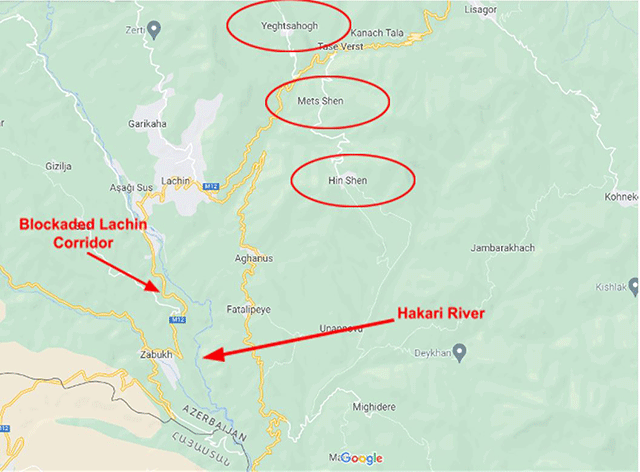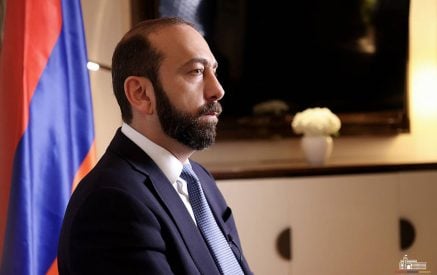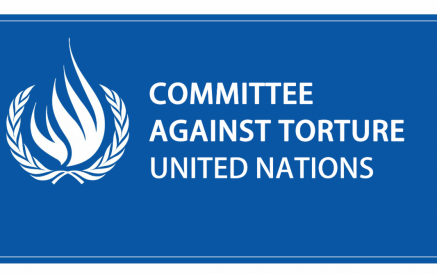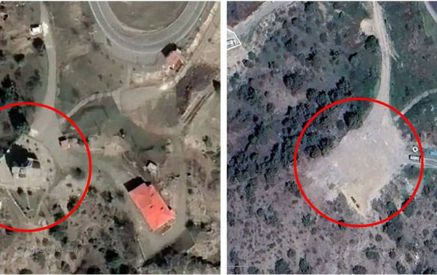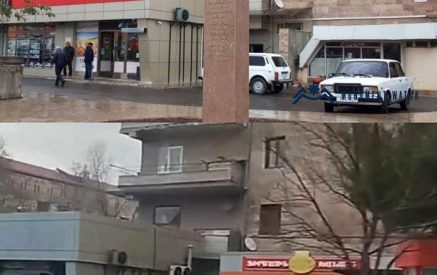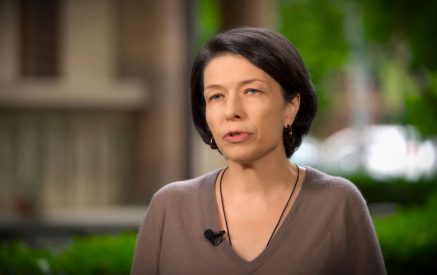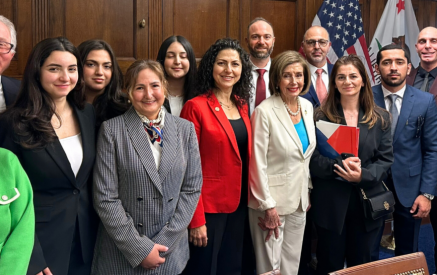The Center for Truth and Justice
Introduction
- The Center for Truth and Justice (CFTJ) is a registered 501(c)(3) nonprofit organization based in Los Angeles, California. CFTJ has been documenting human rights violations and war crimes against Armenians since the 2020 war in Nagorno-Karabakh. CFTJ set up a fact-finding infrastructure in the region and has been collecting first-hand testimonies from the victims. The evidence-gathering methodology CFTJ uses can be found here: Methodology. CFTJ preserves evidence and makes it available for educational purposes, advocacy, and potential legal The CFTJ team is comprised of attorneys and law students in the U.S., Armenia, and
Nagorno-Karabakh, as well as human rights advocates and other professionals. The work CFTJ does is dedicated to amplifying the voices of victims of human rights violations, including discrimination, ethnic cleansing, displacement, war crimes, mass atrocities, and genocide. CFTJ educates and trains teams in Armenia and Nagorno-Karabakh on evidence-based interview techniques, comporting with international legal standards and rules of evidence. The mission of CFTJ is to serve as a living memorial to those who perished or suffered from human rights abuses and war crimes. A permanent home for victim testimonies, CFTJ strives to foster education, empathy, justice, and change.
- CFTJ has prepared this report to urgently highlight the worsening humanitarian crisis facing the indigenous Armenian population of Nagorno-Karabakh, which remains under effective In particular, CFTJ wishes to call attention to the lack of access to food and the consequent imminent risk of starvation in the villages of Mets Shen, Hin Shen, and Yeghtsahogh, which Azerbaijan’s recent actions have further isolated.
- Since December 12, 2022, the Berdzor/Lachin Corridor, the only route connecting the ethnic Armenian enclave of Nagorno-Karabakh to the Republic of Armenia and the international community, has been under persistent blockade by individuals claiming to be so-called Azerbaijani “eco-activists.” However, multiple reports have indicated that these alleged activists are, in fact, agents of the Azerbaijani government, with many possessing strong ties to state security services and the Azerbaijani Armed 1 On February 22, 2023, the International
1 See Center for Law and Justice “Tatoyan” Foundation and Human Rights Ombudsman of the Republic of Artsakh,
Joint Report: the Azerbaijani government’s “eco-activist” agents who blockaded the only road of life connecting
Court of Justice (ICJ), the principal judicial organ of the United Nations, ordered Azerbaijan to “take all measures at its disposal to ensure unimpeded movement of persons, vehicles and cargo along the Lachin Corridor in both directions.”2 Provisional measures orders of the ICJ are binding on parties in contentious cases.3
Read also
- Previously, on December 12, 2023, the European Court of Human Rights (ECtHR) had indicated interim measures under Rule 39 of the Rules of the Court, obliging Azerbaijan to “take all measures that are within their jurisdiction to ensure safe passage through the ‘Lachin Corridor’ of seriously ill persons in need of medical treatment in Armenia and others who were stranded on the road without shelter or means of subsistence.”4 The interim measures of the ECtHR under Rule 39 are binding on parties to contentious 5
I. Imminent Risk of Starvation in Nagorno-Karabakh Villages
- As documented in CFTJ’s previous submissions to UN Human Rights Council special procedure mandate holders, Azerbaijan is in violation of the binding orders of the ICJ and 6 In this urgent report, CFTJ wishes to call attention to the imminent risk of starvation in the villages of Mets Shen, Hin Shen, and Yeghtsahogh. See the locations of these three villages on the map below:
Artsakh to Armenia and the outside world (February 2023), https://tatoyanfoundation.org/wp- content/uploads/2023/02/ECO_ACTIVISTS_22.02.2023V2.pdf; Simon Maghakyan, “How Azerbaijan Weaponized Environmentalism to Justify Ethnic Cleansing” (Time, February 22, 2023), https://time.com/6257467/armenia- azerbaijan-nagorno-karabakh-lachin-environment-icj/.
2 Application of the International Convention on the Elimination of All Forms of Racial Discrimination (Armenia v. Azerbaijan) (Provisional Measures) 2023, para 67, https://www.icj-cij.org/sites/default/files/case-related/180/180- 20230222-ORD-01-00-EN.pdf.
3 See, e.g., LaGrand (Germany v. United States) (Merits) [2001] ICJ Rep 466, para 109; Application of the Convention on the Prevention and Punishment of the Crime of Genocide (The Gambia v. Myanmar) (Provisional Measures) [2020] ICJ Rep 3, para 24.
4 “European Court decides to indicate interim measures in the “Lachin Corridor’” (Press Release ECHR 401 (2022), February 21, 2022), https://hudoc.echr.coe.int/eng-press?i=003-7528728-10337270.
5 See Mamatkulov and Askarov v. Turkey, App Nos 46827/99 and 46951/99, (ECtHR, February 4, 2005) para 100;
Olaechea Cahuas v. Spain, App No 24668/03 (ECtHR, August 10, 2006) para 81.
6 See, e.g., Center for Truth and Justice, Report on the Right to Development Regarding the Humanitarian Crisis in Nagorno-Karabakh and Azerbaijan’s Violation of the orders of the International Court of Justice (March 23, 2023), https://www.cftjustice.org/wp-content/uploads/2023/03/REPORT-on-the-Right-to-Development-Regarding-the-Hum anitarian-Crisis-in-Nagorno-Karabakh-and-Azerbaijans-Violation-of-the-orders-of-the-the-International-Court-of-Ju stice.pdf.
- On April 23, 2023, Azerbaijan took the unilateral and coercive decision to close the bridge across the Hakari River, which is located along the Lachin Corridor, using its armed This measure has been decried by U.S. and European Union officials. The populations of these three villages now stand even further isolated, now unable to reach either Armenia or the rest of Nagorno Karabakh.
- CFTJ is aware of 80 civilians, including 20 children, now dangerously isolated in the village of Mets 75 civilians, 15 of them children, are also isolated in Hin Shen. The largest isolated population resides in Yeghtsahogh, where 153 civilians, including 33 children, remain cut off from both Armenia and the rest of Nagorno-Karabakh. A number of villagers from Hin Shen made contact with a group of Russian peacekeepers, who told them that their travel to Goris, Armenia, was restricted. The villagers would previously travel in small groups to Goris, where they would buy food. Goris represented the only location the villagers had the means to travel to in order to obtain food; it was only accessible by virtual of the Hakari River bridge, which Azerbaijani forces have now blockaded. The heads of all three villages have remarked that so long as an Azerbaijani military presence exists at the Hakari River bridge, it will be impossible for villagers to make use of it.
- Six civilians from Mets Shen, including three children, are trapped in Goris, having departed on April 23 to purchase food and now unable to return to their Additionally, the village nurse serving the entire village of Mets Shen is also stuck in Goris, having traveled to purchase medicine for the elderly residents of the village, raising fears amongst the villagers that their village is now completely without trained medical staff. Ten civilians in Mets Shen are over the age of 70 and are in need of medication which would ordinarily be obtained from Goris given that the village lacks a pharmacy. These individuals and their families are gravely concerned that they will now be unable to obtain these vital medications in time. Many in Hin Shen are similarly in need of medications. With no pharmacy in Hin Shen either, these villagers are similarly afraid of the severe medical consequences, especially for the elderly, associated with a lack of access to medications. Two civilians from Yeghtsahogh are similarly stuck in Goris, having traveled to purchase food. They attempted to return home before being told by Armenian armed forces patrolling the border that Azerbaijani forces had blocked the Hakari River, and thus, there was no way for them to return home.
- These three villages are small and not self-sufficient—they depend on access to Goris in order to obtain food and vital Absent this access, severe humanitarian consequences will befall their civilian populations. The inhabitants of Mets Shen estimate that they have enough food supplies to last the village for a month; those of Hin Shen estimate their supplies will last for only a week; those of Yeghtsahogh estimate they have enough food for the next 10–15 days. Earlier in March 2023, the gas supply to Nagorno-Karabakh, which depends on pipes running from Armenia but passing through Azerbaijani-controlled territory, was cut off. While the gas supply to the capital of Nagorno-Karabakh, Stepanakert, has been restored, many smaller settlements, including Mets Shen, Hin Shen, and Yeghtsahogh, still lack access to gas. The villagers have also reported frequent interruptions in the electricity supply, which is similarly dependent on power lines that run through Azerbaijani territory.
I. Legal Implications
- International Human Rights Law
- Under the International Covenant on Economic, Social and Cultural Rights (ICESCR),7 and customary international human rights law as reflected in the Universal Declaration of Human Rights,8 Azerbaijan is obligated to respect the rights to health, education, an adequate standard of living, and water and sanitation.9 These human rights obligations under the ICESCR are so fundamental that they continue to apply even in situations of armed conflict,10 constituting a minimum standard of rights which must be respected even during armed 11 Limitations on these rights would be contrary to the object and purpose of the ICESCR even during armed conflict and thus would constitute a violation of the Covenant.12 Azerbaijan is obliged to respect these rights both within and outside its territory whenever its acts or omissions bring about
7 International Covenant on Economic, Social and Cultural Rights (adopted December 16, 1966) 993 UNTS 3
(ICESCR) arts 2(1), 11(1), 12.
8 Universal Declaration of Human Rights, UNGA Res 217(III) A (December 10, 1948) (UDHR) art 25(1). On the customary status of the UDHR, see Legal Consequences for States of the Continued Presence of South Africa in Namibia (South West Africa) notwithstanding Security Council Resolution 276 (1970) (Advisory Opinion) [1971] ICJ Rep 16, 76 (separate opinion of Vice President Ammoun); United States Diplomatic and Consular Staf in Tehran (United States v. Iran) (Judgment) [1980] ICJ Rep 3, para 91; Andrés Aguilar (Special Representative of the UN Commission on Human Rights), “Preliminary Report on the Human Rights Situation in the Islamic Republic of Iran” (1985) UN Doc E/CN.4/1985/20, paras 14–15; Theodor Meron, Human Rights and Humanitarian Norms as Customary Law (Oxford University Press 1989) 95–96.
9 UN Committee on Economic, Social, and Cultural Rights (UN CESCR), “General Comment No. 3: The nature of States parties’ obligations” (1990) UN Doc E/1991/23, para 10 (on the deprivation of essential foodstuffs, essential primary health care, basic shelter, housing, and the most basic forms of education as violations of Article 2(1) of the ICESCR); UN CESCR, “General Comment No. 15: The Right to Water” (2002) UN Doc E/2003/22, para 3 (on the right to water as an indispensable right under Article 11(1) of the ICESCR); UN CESCR, “General Comment No. 4: The Right to Adequate Housing” (1991) UN Doc E/1992/23, paras 8(b), (d), 11 (on the right to housing as an indispensable right under Article 11(1) of the ICESCR); UN CESCR, “General Comment No. 14: The Right to the Highest Attainable Standard of Health” (2000) UN Doc E/CN.12/2000/4, paras 4, 5, 11, 12(b), 34, 36, 51 (on the right to health under the ICESCR).
10 Legal Consequences of the Construction of a Wall in the Occupied Palestinian Territory (Advisory Opinion) [2004] ICJ Rep 136, para 106; Armed Activities on the Territory of the Congo (Democratic Republic of the Congo v. Uganda) (Merits) [2005] ICJ Rep 168, para 216; Application of the International Convention on the Elimination of All Forms of Racial Discrimination (Georgia v. Russian Federation) (Provisional Measures) [2008] ICJ Rep 353, para 112; William A Schabas, ‘Lex Specialis? Belt and Suspenders? The Parallel Operation of Human Rights Law and the Law of Armed Conflict, and the Conundrum of Jus ad Bellum’ (2007) 40 Israel Law Review 592, 598.
11 UN CESCR, “General Comment No. 3” (n 9) para 10; UN CESCR, “General Comment No. 14” (n 9) paras 43–44; Gilles Giacca, Economic, Social, and Cultural Rights in Armed Conflict (Oxford University Press 2014) 26, 81–82; Katherine H.A. Footer and Leonard S. Rubenstein, “A Human Rights Approach to Health Care in Conflict” (2013) 95 International Review of the Red Cross 167, 183; Philip Alston and Gerard Quinn, “The Nature and Scope of States Parties’ Obligations under the International Covenant on Economic, Social and Cultural Rights” (1987) 9 Human Rights Quarterly 156, 201.
12 UN CESCR, “General Comment No. 19, The Right to Social Security” (2008) UN Doc E/C.12/GC/19, para 65; UN CESCR, “General Comment No. 15” (n 9) para 40; UN CESCR, “General Comment No. 14” (n 9) para 47. foreseeable effects on the enjoyment of economic, social, and cultural rights.13
- The right to food deserves special consideration. The UN Committee on Economic, Social, and Cultural Rights observed that this right is realized “when every man, woman, and child, alone or in community with others, has physical and economic access at all times to adequate food or means for its ”14 Article 25 of the Universal Declaration of Human Rights recognizes the right to food as part of the right to an adequate standard of living,15 as does Article 11(1) of the ICESCR.16 Article 11(2) of the Covenant further recognizes “the fundamental right of everyone to be free from hunger.”17 The UN Human Rights Committee has also interpreted the right to life under Article 6(1) of the International Covenant on Civil and Political Rights as imposing on States the obligation to prevent malnutrition.18 The entire populations of Mets Shen, Hin Shen, and Yeghtsahogh are being denied their enjoyment of these rights under human rights law.
- Furthermore, the Convention on the Rights of the Child recognizes the right of children to adequate food and nutrition in Article 24(2)(c) and (e) in the context of the right to health and Article 27(3) in the context of the right to an adequate standard of living.19 The combined 63 children residing in Mets Shen, Hin Shen, and Yeghtsahogh who are now without access to food are being deprived of their enjoyment of these rights under the Convention. Moreover, the Convention on the Rights of Persons with Disabilities recognizes the right to food in the context of the right to health and the right to an adequate standard of living and social protection in Articles 25(f) and 28(1), 20 It is worth noting that individuals with disabilities who
13 ICESCR (n 7) art 2(1). On the territorial application of the Covenant, see UN CESCR, “General Comment No. 3” (n 9) paras 13–14; UN CESCR, “General Comment No. 21: The right of everyone to take art in cultural life” (2009) UN Doc E/C.12/GC/21, para 58; Giacca (n 10) 115–25; Matthew Craven, The International Covenant on Economic, Social and Cultural Rights: A Perspective on its Development (Oxford University Press 1995) 144.
14 UN CESCR, “General Comment No. 12: The Rights to Adequate Food (Art 11)” (May 12, 1999) UN Doc E/C.12/1999/5, para 6.
15 UDHR (n 8) art 25(1).
16 ICESCR (n 7) art 11(1).
17 ibid, art 11(2).
18 UN Human Rights Committee, “General Comment No. 36 on article 6: right to life” (September 9, 2019) UN Doc CCPR/C/GC/36, para 26. See International Covenant on Civil and Political Rights (adopted December 16, 1966) 999 UNTS 171, art 6(1).
19 Convention on the Rights of the Child (adopted November 20, 1989) 1577 UNTS 3, arts 24(2)(c), (e), 27(3). 20 Convention on the Rights of Persons with Disabilities (adopted December 13, 2006) 2515 UNTS 3, arts 25(f), 28(1). are in need of vital medications in Mets Shen, Hin Shen, and Yeghtsahogh are also being subject to a separate denial of their right to health under Article 25(b) and (f) of the Convention.21
- The deprivation of the peoples’ of Mets Shen, Hin Shen, and Yeghtsahogh access to food and medicine has the potential to amount to the crime against humanity of extermination, which Article 7(2)(b) of the Rome Statute of the International Criminal Court defines as “the intentional infliction of conditions of life, inter alia the deprivation of access to food and medicine, calculated to bring about the destruction of part of a population.”22 If Azerbaijan’s policy of isolating the people of Nagorno-Karabakh from these essential goods results in mass fatalities, the elements of the crime against humanity of extermination may likely be satisfied.23 Given the ethnic context of the conflict, these actions can be reasonably regarded as constituting discriminatory treatment against Armenians on the basis of their nationality and ethnicity, meaning that this conduct can also amount to the crime against humanity of persecution.24 Starvation has previously been characterized as persecution by international tribunals.25
B. International Humanitarian Law
- Customary international humanitarian law (IHL) provides that “methods and means of warfare, which would preclude any distinction between civilian and military targets … are ”26 Relatedly, Article 57(1) of Additional Protocol I to the Geneva Conventions obliges States to take “constant care … to spare the civilian population, civilians and civilian objects.”27 The blockade has had severe humanitarian consequences for the civilian population of ibid, art 26(b), (f).
22 Rome Statute of the International Criminal Court (adopted 17 July 1998) 2187 UNTS 3 (Rome Statute) art 7(2)(b).
23 Cf Prosecutor v. Kayishema (Trial Judgment) ICTR-95-1-T (May 21, 1999) para 144; Prosecutor v. Kristić (Trial Judgment) IT-98-33-T (August 2, 2001) para 503; Kai Ambos, Treatise on International Criminal Law, vol II (2nd edn, Oxford University Press) 88–89.
24 See Rome Statute (n 22) art 7(1)(h); Christopher K. Hall and Joseph Powderly, “Article 7(1)(h): Persecution” in Otto Triffterer and Kai Ambos (eds), The Rome Statute of the International Criminal Court: A Commentary (3rd edn, C.H. Beck 2016) 275–82.
25 See, e.g., France v. Göring (1947) 41 AJIL 172, 247; Attorney General v. Eichmann (1968) 36 ILR 18, 241 (District Court of Jerusalem); Prosecutor v. Blaškić (Trial Judgment) IT-95-14-T (March 3, 2000) para 224.
26 Legality of the Threat or Use of Nuclear Weapons (Advisory Opinion) [1994 ICJ Rep 226, para 95. See also Prosecutor v. Galić (Appeal Judgment) IT-98-29-A (November 30, 2006) para 190; Prosecutor v. Milošević (Appeal Judgment) IT-98-29/1-A (November 12, 2009) para 53; Armed Activities on the Territory of the Congo (n 10) para 208.
27 Protocol Additional to the Geneva Conventions of 12 August 1949 and Relating to the Protection of Victims of International Armed Conflicts (adopted June 8, 1977) 1125 UNTS 3 (Additional Protocol I) art 57(1).
Nagorno-Karabakh and has accordingly failed to distinguish between civilian and military targets as required by IHL. Given that the blockade imposes humanitarian costs on the entire population of Nagorno-Karabakh, without discrimination as to the civilian or military nature of persons harmed as a result of the blockade. While some Azerbaijani officials have suggested that the Lachin road and the Hakari River bridge had, at one point, been used to transport military equipment, the prohibition against targeting civilians remains absolute under customary international law—military necessity can never be used as justification for targeting civilians during armed conflict.28
- The Lachin corridor and Hakari River bridge blockades can be alternatively constructed as indiscriminate attacks on the civilian population of Nagorno-Karabakh rather than attacks directed at them. Article 51(4) of Additional Protocol I provides that an attack is indiscriminate if it is not directed at a specific military objective, employs a method or means of combat that cannot be directed at a specific military objective, or employ a method or means of combat the effects of which cannot be limited and consequently are of a nature to strike military objectives and civilians or civilian objects without distinction.29 Article 52(2) of Additional Protocol I defines ‘military objectives’ as “objects which by their nature, location, purpose or use make an effective contribution to military action and whose total or partial destruction, capture or neutralization, in the circumstances ruling at the time, offers a definite military advantage.”30
One could not reasonably make the argument that the entirety of Nagorno-Karabakh—the area subject to the effects of the Lachin corridor blockade—could qualify as a military objective in toto. Mets Shen, Hin Shen, and Yeghtsahogh are, moreover, purely civilian settlements.
Furthermore, a blockade of the only road into a landlocked enclave, otherwise totally surrounded by hostile territory, is emphatically ‘a method or means of combat which cannot be directed at a specific military objective.’ And finally, due once again to the nature of the blockades and the situation of Nagorno-Karabakh and the peoples of the three villages, the effects of the blockades cannot be limited as demanded by Additional Protocol I and is consequently of a nature to affect military objectives and civilians or civilian objects without distinction, as prohibited under IHL.
28 Prosecutor v. Blaškić (Appeal Judgment) IT-95-14-A (July 29, 2004) para 109; Prosecutor v. Kordić (Appeal Judgment) IT-95-14/2-A (January 26, 2005) para 52; Milošević Appeal Judgment (n 26) para 53.
29 Additional Protocol I (n 27) art 51(4).
30 ibid, art 52(2).
- In addition, Article 54(2) of Additional Protocol I prohibits acts rendering useless “objects indispensable to the survival of the civilian population … for the specific purpose of denying them for their sustenance value to the civilian population or to the adverse Party, whatever the motive, whether in order to starve out civilians, to cause them to move away, or for any other motive.”31 The Lachin corridor is undoubtedly “indispensable to the survival of the civilian population” of Nagorno-Karabakh, constituting the region’s sole connection to the outside world, supplying its population with much of its basic needs, including food and The Hakari River bridge can similarly be characterized as an object ‘indispensable to the survival of the civilian populations’ of Mets Shen, Hin Shen, and Yeghtsahogh, and its blockade by Azerbaijani forces as rendering this object useless.
- In addition, Article 4(2)(b) of the Additional Protocol I prohibits the imposition of collective punishment, which the UN Commission on Human Rights in South Sudan has suggested the mass deprivation of critical resources to an area may qualify as.32 The Appeals Chamber of the Special Court of Sierra Leone has explained that “a ‘punishment’ for the purposes of the crime of collective punishments is an indiscriminate punishment imposed collectively on persons for omissions or acts for which some or none of them may or may not have been responsible.”33 Azerbaijani state rhetoric frequently refers to the Armenians as ‘terrorists,’ with the collective ascription of criminality to the region’s entire ethnic Armenian population occupying a prominent and often ubiquitous place in Azerbaijani political 34 The Lachin corridor and Hakari River bridge blockades may likely constitute the imposition of collective punishments upon a civilian population in violation of IHL.
- Article 23 of the Fourth Geneva Convention furthermore obliges Azerbaijan to “allow the free passage of all consignments of medical and hospital stores and objects necessary for religious worship intended only for civilians,” even when such civilians belong to the enemy
31 ibid, art 54(2).
32 UN Commission on Human Rights in South Sudan, “‘There is nothing left for us’: starvation as a method of warfare in South Sudan” (October 5, 2020) UN Doc A/HRC/45/CRP.3, para 9.
33 Prosecutor v. Fofana (Appeal Judgment) SCSL-04-14-A (May 28, 2008) para 223.
34 See, e.g., UN Committee on the Elimination of Racial Discrimination, “Concluding observations on the combined tenth to twelfth periodic reports of Azerbaijan” (September 22, 2022) UN Doc CERD/C/AZE/CO/10-12, para 4(c); European Commission Against Racism and Intolerance, “ECRI Report on the Azerbaijan (fifth monitoring cycle)” (March 17, 2016) Council of Europe Doc CRI(2016)17, at 9–10, 16; Transparency International et al., Anti- Armenian Xenophobia and Racism in Azerbaijan 2021 (2022) 17–18. population.35 Expanding upon this obligation, Article 54(1) of Additional Protocol I specifically prohibits the use of starvation as a method of warfare.36 As the UN Commission on Human Rights in South Sudan noted:
The term “starvation” should be understood to encompass deprivation not just of food and water but also of other goods essential for survival in a particular context. The crime of starvation does not require that victims die from starvation, only that they should intentionally be deprived of objects indispensable to their survival. This may include depriving individuals of their ability to obtain food, degrading public health, and disrupting access to clean water, or deliberate denial of food and arbitrarily refusing to allow relief operations where the survival of the civilian population is threatened.37
- While Azerbaijan’s blockade of the Lachin corridor has undoubtedly deprived the Armenian population of Nagorno-Karabakh of food and water, it has also prevented the entry of a variety of other resources indispensable to the survival of the civilian population, most notably Article 8(2)(b)(xxv) of the Rome Statute of the International Criminal Court, as amended in December 2019, designates the following as a war crime when committed during an international armed conflict: “Intentionally using starvation of civilians as a method of warfare by depriving them of objects indispensable to their survival, including wilfully impeding relief supplies as provided for under the Geneva Conventions.”38 While neither Armenia nor Azerbaijan is currently a State Party to the Rome Statute, Armenia has begun the process to do so and is expected to formally ratify the Statute in 2023.
Conclusion
- The humanitarian situation in Nagorno-Karabakh is worsening by the day. The civilian populations of Mets Shen, Hin Shen, and Yeghtsahogh are weeks away from starvation. The involvement of the international community is vital to resolving this imminent catastrophe. CFTJ urges the governments of the United States, France, and the Russian Federation, as co-chairs of the OSCE Minsk Group, to take immediate and decisive action to bring the herein-detailed
35 Geneva Convention relative to the protection of civilian persons in time of war (adopted August 12, 1949) 75 UNTS 287 (Geneva Convention IV) art 23(1).
36 Additional Protocol I (n 27) art 54(1).
37 UN Commission on Human Rights in South Sudan (n 32) para 36.
38 Rome Statute (n 22) art 8(2)(b)(xxv).
humanitarian crisis to an end. CFTJ notes, in particular, the obligations of Russian Federation peacekeepers under the November 9, 2020 Trilateral Declaration as security guarantors in the Lachin Corridor and Nagorno-Karabakh as a whole.39 Time is of the essence; the people of Nagrono-Karabakh are near a dangerous breaking point. International actors must act swiftly to ensure the enjoyment of fundamental human rights in the region and prevent grave breaches of international humanitarian law.

